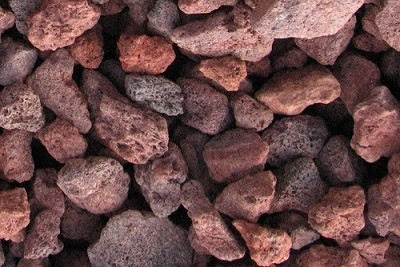Which filter bio media house both nitrifying (aerobic) and denitrifying (anaerobic) bacteria?
Fish poop is very dangerous for
aquatic inhabitants as it can cause ammonia spike, which can make your fish
ill, & even kill them. Good bacteria also known as nitrifying bacteria is
necessary for breaking down ammonia into lower toxic nitrates.
Bio media houses heaps of good
bacteria. Nitrifying bacteria is beneficial for aquatic life as it wipes out
ammonia & nitrites. Denitrifying bacteria can even remove nitrates from the
water. Denitrifying bacteria grows in oxygen less places such as inside the
pores of bio media. Nitrates are less dangerous than ammonia & nitrites but
they are still harmful for fish. Nitrate spikes can stress your fish & even
kill them.
Every bio media houses nitrifying
bacteria but some of them can hold both nitrifying & denitrifying bacteria.
In this article, I have listed bio media that hold both nitrifying & denitrifying
bacteria, & their efficiency of cleaning organic waste.
- EHEIM Substrat Pro Biological Filter Media
- Fluval Biomax Bio Rings
- Seachem Matrix Bio Media
- Biohome Ultimate Filter Media
- Hygger Large Aquarium Filter Media
- Lava Rocks
- EHEIM Substrat Pro Biological
Filter Media:
EHEIM Substrat Pro Biological
Filter Media houses both nitrifying & denitrifying bacteria. It has a
longer life than many other bio media, & it can work in every aquarium
filter. However, EHEIM Bio Media is costly.
The porous surface of EHEIM BFM is
used for housing both aerobic & anaerobic bacteria. Its porous surface
offers more area & makes the best place for both nitrifying &
denitrifying bacteria.
Alternatively, this bio media
lets more water pass through it in comparison to solid-shaped bio media. Hence,
it has a higher contact time with toxic water.
- Fluval Biomax Bio Rings:
Fluval Biomax Bio Rings are
useful for housing both aerobic & anaerobic bacteria. The ring shape lets
more water flow through it. This bio media works with most of the filters. However,
if you leave rings to dry then it can make them crumble.
The porous texture of this media
lets heaps of good bacteria spread over it in comparison to other smooth-surface
bio media. These pores lock detritus that not just makes water clear but also
wipes out ammonia & nitrites, while lowering nitrates in the aquarium
water.
Denitrification is important to
saving algae spikes, & keeping corals & invertebrates healthy. These ceramic
rings are best for reef aquariums.
The ring shape lets water flow
through the bio media & make sure they have high contact time with the water.
Ceramic rings can be added to canister filters, SUMPS, HOB & other types of
aquarium filters. They are good for most of the fish tanks.
- Seachem Matrix Bio Media:
The cavities in Seachem Matrix offer
more space for colonization of good bacteria. It is very efficient in the
removal of nitrates from the water. It can be used in any type of filter.
Seachem Matrix is made of pumice
stone, which is expensive. This stone is very porous & cavities offer more space
for the growth of good bacteria.
The manufacturer claims that one
litre of Seachem Matrix is as efficient as 170 litres of plastic media. It is
difficult to verify this claim, but Seachem Matrix is extremely efficient than
most other bio media available in the market.
Seachem Matrix can effectively
break down ammonia, & it is very efficient in wiping out nitrates.
- Biohome Ultimate Filter Media:
Biohome Ultimate Filter Media
enhances the growth of both aerobic & anaerobic bacteria. It is used for
handling heaps of organic waste. Biohome Ultimate Filter media can work up to
ten years.
However, Biohome can tint the
water bronze a bit.
It is very efficient in absorbing
water. Biohome is used for housing both nitrifying & denitrifying bacteria.
The unique design of the media is used for growing anaerobic bacteria.
This bio media is not just very
efficient but offers fast outcomes. Within only a few hours of operation, it
begins cleaning the water. It does not matter if there is a high build-up of
poop, this media can easily clean it. Therefore, it is very efficient in
cleaning up goldfish waste.
- Hygger Large Aquarium Filter
Media:
Hygger Large Aquarium Filter
Media provides a large surface area for colonization of good bacteria. It
offers double filtration. It can be reused for simple maintenance.
However, this bio media cannot be
used for saltwater tanks.
This bio media is full of holes
that allow aerobic bacteria to stick to it in comparison to most of the other
bio media. This enhances the contact time of organic waste with the media for
very efficient filtration of water.
It also collects solid detritus
like mechanical filtration media & enhances the growth of aerobic bacteria.
It can be reused & needs
simple maintenance. It requires occasional washing & it can be used again
with no problem. Therefore, this bio media can be used for years.
- Lava Rocks:
Lava rocks are very efficient for
aquariums as they promote the growth of useful bacteria over their surface.
Most of the hobbyists keep lava rocks in their filters as it increases the
contact time of organic waste with the bio media. Lava rocks keep water clean,
& hobbyists use them to build structures for their fish tanks.
Nevertheless, lava rocks have sharp edges that could hurt your fish if you use
them as substrate. Hobbyists use lava rocks as substrate as they assist the
growth of aquatic plants.
Lava rocks keep water clean. They
are cheaper than other bio media.
Lava rocks hold aerobic &
anaerobic bacteria that wipe out ammonia, nitrites & nitrates from the aquarium
water.
Hobbyists also use lava rocks to
build caves where fish & their fries can hide.




Post a Comment